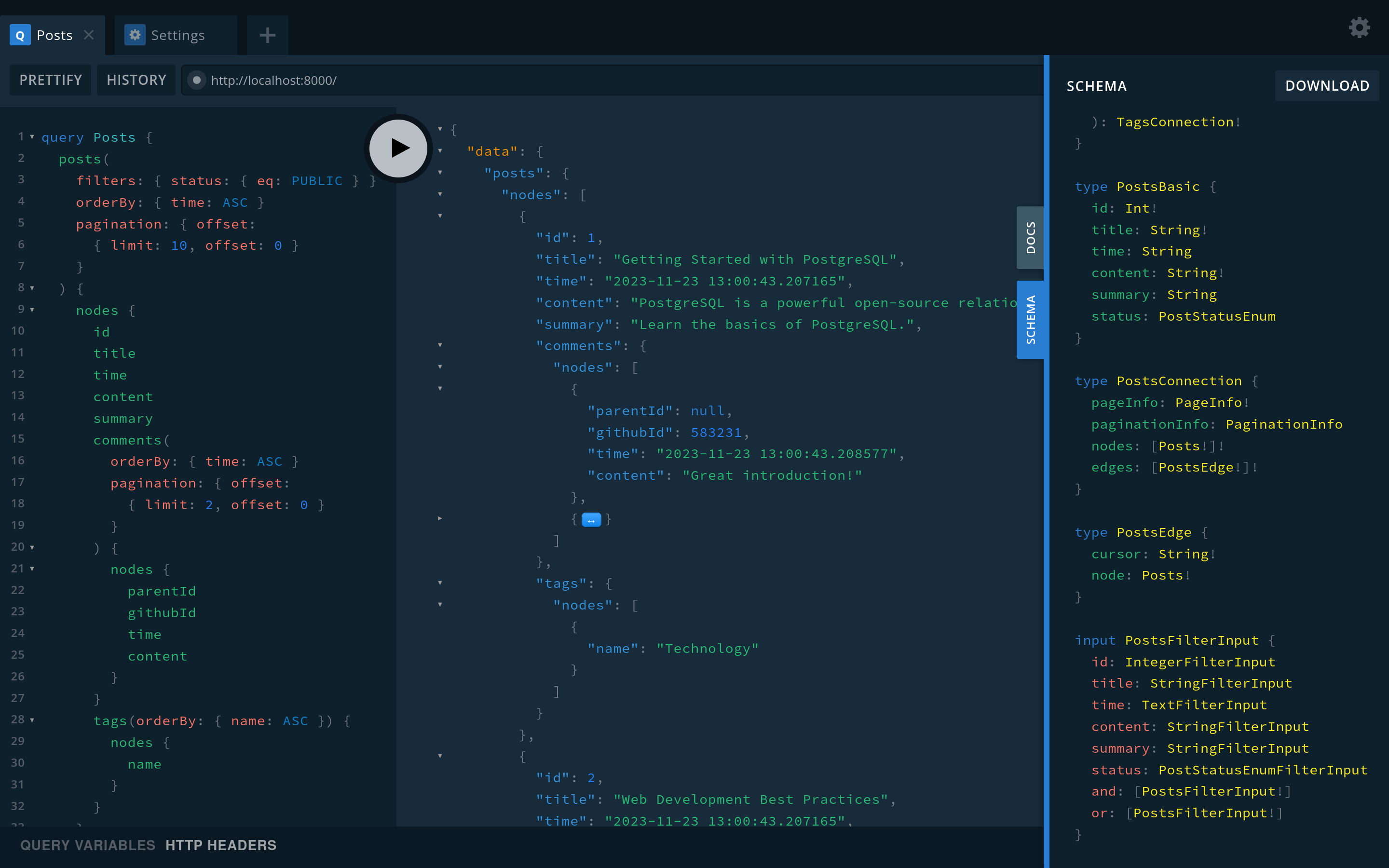It originally started as a straightforward, almost boring backend rewrite project, for my old blog backend. However, as I delved into learning Rust and explored Rust crates associated with web development, it turned to an exploratory venture.
- The whole project is based on the Seaography and the code framework generated from its cli, with dynamic-schema async-graphql as the GraghQL library, Actix as the web framework, and SeaORM & Postgres as the ORM & database, providing rich and flexible GraphQL query (nested relation, pagination, filtering, ordering, etc.)
- Implement permission control through a custom guard system and a custom resolver registration system.
- Use GitHub OAuth2 for authentication, and avoid the burden of building any user system while designing data schema, just using stateless JWT.
-
Set the postgres and import the schema with
scripts/plainly_rusty_create.sqlpsql -q {postgres_url} < scripts/plainly-rusty-schema.sql -
Modify or replace the default configuration file,
configs/default.toml. -
Run with env variables:
RUST_LOG={log_level} CONFIG_FILE={file_path} cargo runOr use Docker:
export POSTGRES_PASSWORD={pwd} RUST_LOG={level} CONFIG_FILE={file_path} IMAGE_VERSION={version} cargo build --release --target x86_64-unknown-linux-musl docker build -f deploy/build/Dockerfile . -t plainlyrusty:${IMAGE_VERSION} docker compose -f deploy/docker-compose.yml up
query Posts {
posts(
filters: { status: { eq: PUBLIC } }
orderBy: { time: ASC }
pagination: { offset: { limit: 10, offset: 0 } }
) {
nodes {
id
title
time
content
summary
comments(
orderBy: { time: ASC }
pagination: { offset: { limit: 2, offset: 0 } }
) {
nodes {
parentId
githubId
time
content
}
}
tags(orderBy: { name: ASC }) {
nodes {
name
}
}
}
}
}
On the GraphQL Playground:
